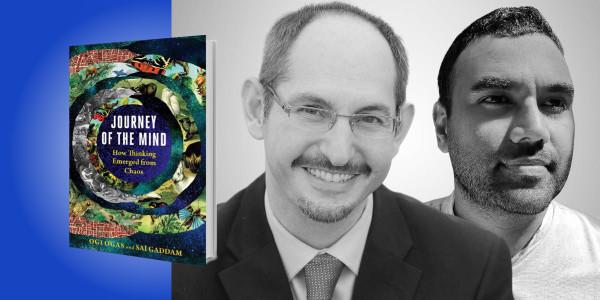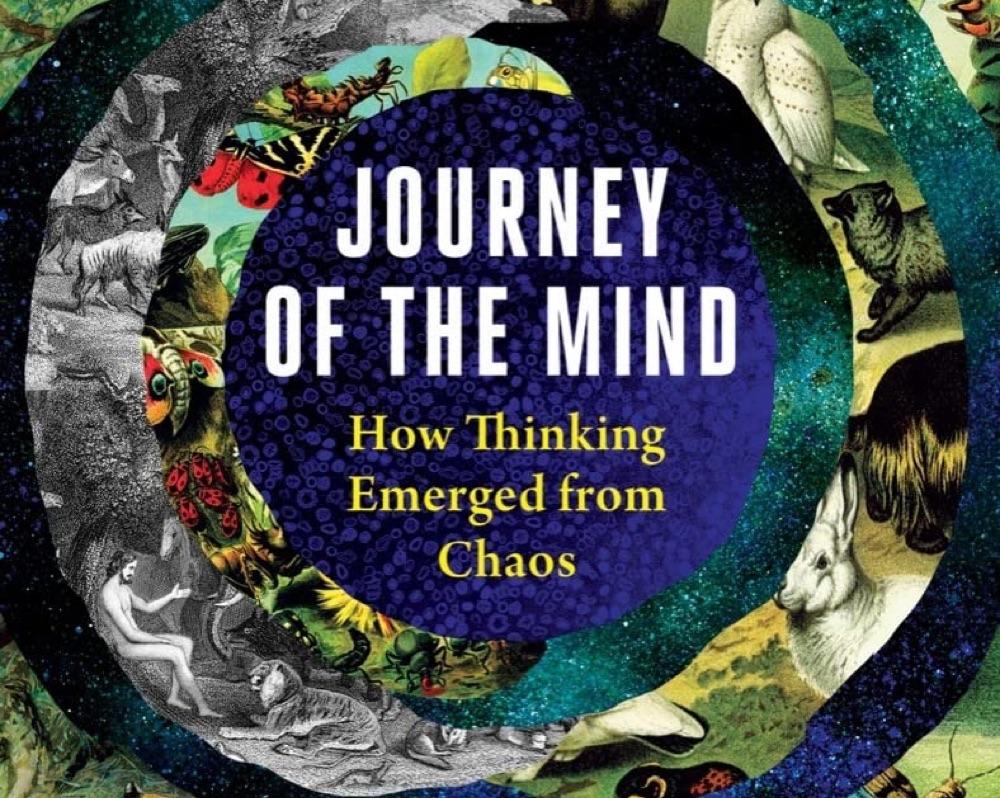Journey of the Mind: How Thinking Emerged from Chaos
Curated from: nextbigideaclub.com
Ideas, facts & insights covering these topics:
22 ideas
·4.71K reads
26
3
Explore the World's Best Ideas
Join today and uncover 100+ curated journeys from 50+ topics. Unlock access to our mobile app with extensive features.
Our experience of experience itself has long been the greatest mystery in the mind sciences. How can the physical activity of tiny, gooey cells in our cranium produce our wondrous experience of joy, and pain, and recognizing our friends, and understanding the meaning of the words that we are reading or listening to?
But what matters even more than the details of how physical activity in our brain gets converted into the intangible banquet of awareness is what this explanation can do for us. How can knowing how consciousness works help our lives?
45
452 reads
There Have Been 4 Stages Of Minds
One of the most salient lessons from the journey of the mind is this: if we want to get smarter, we must embrace diversity. To explain why this is so, we must first understand another crucial concept. There have been four distinct stages of thinking on Earth—four distinct stages of minds.
43
384 reads
Stage I Minds: The Point-Thinking Minds
Stage One minds are the simplest minds on Earth, including the very first minds that ever existed. We’ll call them “point-thinking” minds, because these minds think in terms of points in space. All microscopic single-celled creatures, including archaea, bacteria, and protozoa, boast point-thinking minds.
46
342 reads
Stage II Minds: The Pattern-Thinking Minds
Stage Two minds can think about patterns, so we’ll call them “pattern-thinking” minds. All invertebrates, including jellyfish, worms, and insects, possess pattern-thinking minds.
46
334 reads
Stage III Minds: The Object-Thinking Minds
Stage Three minds encompass all the vertebrate minds, including fish, amphibians, reptiles, birds, and mammals. These minds can think about objects—about concrete things in the world—so we call them “object-thinking” minds.
46
313 reads
Stage IV Minds: The Idea-Thinking Minds
Only one species has reached the fourth stage of thinking, and that’s us, homo sapiens. We are the only creatures who can think about ideas. But here’s the thing—the idea-thinking mind is not the human brain. What sets humans apart from all other creatures in nature is that an idea-thinking mind is comprised of an entire community of human brains.
46
285 reads
From Molecule, To Neuron, To Network: Diversity
The physical component that performs the thinking in point minds is the molecule. Point-thinking minds got smarter over time by diversifying the specific molecules they used to think with, and the most powerful point minds flaunt the greatest diversity of molecules.
Pattern-thinking minds use neurons to think with, and the most powerful pattern minds flaunt the greatest diversity of neurons. Object-thinking minds think using specialized networks of neurons, and the most powerful object minds flaunt the greatest diversity of networks.
45
262 reads
Diversity Is The Ticket To Intelligence
Thus, the three-billion-year-journey of the mind shows that, over and over again, minds develop an expanding variety of thinking elements that enable minds to process a greater variety of inputs, and convert them into a greater variety of behaviors according to a greater range of valuations. This applies to the human supermind, too; the best way for a supermind to get smarter is to diversify the people within it.
47
232 reads
Adapting To Chaos
Let’s talk a little more about those four stages of minds, because hidden within them is a truly momentous revelation—a revelation hidden within the transitions between stages.
The emergence of each stage of thinking involved a mental revolution—a dramatic expansion of the scope of thinking, which we can think of as a dramatic expansion of the scale of chaos that the mind can adapt to. This helps us understand the transitions between stages.
44
204 reads
Connect, Collaborate, Coordinate
The minds in a given stage eventually reach the limit of what they can adapt to. Thinking hits a ceiling, and the minds in one stage just can’t deal with any new forms of chaos unless they learn to coordinate their activity. In other words, to ascend to a new stage of thinking, the minds in the old stage need to figure out how to connect and collaborate with one another.
45
180 reads
Communities Of Minds
How did point-thinking minds learn to think about patterns? By teaming up. Each pattern-thinking mind is a community of point-thinking minds. Each neuron is a self-contained point-thinking mind. It takes a whole network of interconnected neurons—of interconnected point-thinking minds—to think about patterns.
In turn, to think about objects, networks of neurons had to learn to communicate with one another. Networks learned to communicate using mental representations. It takes a community of interconnected networks exchanging representations with one another to think about objects.
45
170 reads
The Supermind And Language
And finally, there’s us, the idea-thinkers—where did we come from? Object-thinking minds teamed up with one another to form a community of object minds. This network of object minds—this supermind—can think about ideas.
So what form of physical connectivity bound together human brains into a supermind? Language. Language empowers the sapiens supermind to think about ideas.
46
167 reads
Individuality And Mutuality
Thus, the three-billion-year journey of the mind imparts a very important lesson about the cosmic role of minds connecting with other minds. The only way for minds to ascend to new stages of intelligence, resilience, and awareness is by showing compassion for one another, freely sharing ideas, knowledge, and resources with one another, and accepting one another’s individuality.
43
153 reads
Language And Self-Awareness
The journey of the mind teaches us something unexpected about the human self—and about self-awareness. We are the only creature on Earth capable of self-awareness, and there’s a very simple reason why: self-awareness requires language. It’s not the particular words themselves that are essential, but rather it’s the dynamics of language that are so important.
43
144 reads
Language And Consciousness
All mammals, birds, reptiles, amphibians, and even fish are conscious; they all possess the necessary neural circuitry to produce the dynamics of consciousness. But human consciousness is different from the consciousness of any other animal because humans possess something extra, a layer of thinking that operates on top of the dynamics of consciousness, the layer that renders us an idea-thinking supermind. This additional layer is language.
45
145 reads
Inside The Mind And Between Minds
The dynamics of language is binding one mind to another, enabling two persons to share awareness of the same ideas at the same time. This mind-to-mind exchange of ideas through language is how the human supermind thinks.
So here’s the secret to the self: the self is formed out of the physical interaction of the dynamics of language and the dynamics of consciousness. It is the dance of language, which operates between minds, and consciousness, which operates inside our mind, that produces our uniquely human experience of, “I am aware of being me!”
44
143 reads
Purpose And Chaos
And why are we here? And what should we do with the life we’ve been given? The three-billion-year journey of the mind offers new answers to these very old questions.
We are part of a never-ending dance of purpose and chaos—the random, aimless churn of physical matter. The dynamics of minds produce purpose in the universe, and the goal of purpose is to overcome the relentless, destructive power of chaos.
44
145 reads
Minds And Chaos
But the journey of the mind—so far—is the chronicle of purpose winning ever-more daunting battles with chaos. Minds defeat chaos by ascending to new stages of intelligence, autonomy, and awareness. Each new stage of thinking in the universe—point-thinking minds, then pattern-thinking minds, then object-thinking minds, then idea-thinking minds—masters a broader scope of physical reality than the stage before.
43
131 reads
The Journey Of The Mind Is Still Going
This makes clear that human beings are not the ultimate destination of the journey of the mind. Many people think of consciousness as the pinnacle of thinking in the universe—but that’s not true at all. Consciousness emerged in fish somewhere around a half-billion years ago. Two more far-reaching mental innovations emerged long after consciousness, including language and the human self. This may come as a shock, but the journey of the mind is still going, still battling chaos, still striving to ascend to the next stage of thinking.
43
119 reads
Stage V Minds: The Hyperminds
Indeed, if we look around our world right now, we see the first hints that the human supermind is pushing toward the emergence of a fifth stage of minds, which we might call “hyperminds.” What is the new form of physical connectivity driving the formation of hyperminds? The internet.
44
126 reads
The Ideology-Thinking Minds
Social media, economic globalization, and cultural globalization can all be understood as a natural and inevitable part of the journey of the mind as it works out the new structures and dynamics that may one day bind together the community of human superminds into a hypermind. Instead of thinking about ideas, this emergent hypermind might think in terms of ideologies.
43
135 reads
What The Journey Of The Mind Makes Clear
But the journey of the mind makes clear that humankind will only rise to a new stage of collective awareness if each of us prioritizes a few key behaviors: First, define your own unique purpose. Second, embrace diversity. Third, respect individuality. Fourth, expand your own sense of self by seeking out rich, complex, and nurturing superminds. Finally, and most importantly, show compassion, respect, and tolerance toward others.
44
147 reads
IDEAS CURATED BY
CURATOR'S NOTE
The journey of the mind—so far—is the chronicle of purpose winning ever-more daunting battles with chaos. Minds defeat chaos by ascending to new stages of intelligence, autonomy, and awareness. Each new stage of thinking in the universe masters a broader scope of physical reality than the stage before. This makes it clear that human beings are not the ultimate destination of the journey of the mind at all.
“
Xarikleia 's ideas are part of this journey:
Learn more about religionandspirituality with this collection
Understanding machine learning models
Improving data analysis and decision-making
How Google uses logic in machine learning
Related collections
Similar ideas
12 ideas
Journey of the Mind: How Thinking Emerged from Chaos
Ogi Ogas, Sai Gaddam
15 ideas
How Minds Change: The Surprising Science of Belief, Opinion, and Persuasion
nextbigideaclub.com
17 ideas
Thinking, Fast and Slow
nextbigideaclub.com
Read & Learn
20x Faster
without
deepstash
with
deepstash
with
deepstash
Personalized microlearning
—
100+ Learning Journeys
—
Access to 200,000+ ideas
—
Access to the mobile app
—
Unlimited idea saving
—
—
Unlimited history
—
—
Unlimited listening to ideas
—
—
Downloading & offline access
—
—
Supercharge your mind with one idea per day
Enter your email and spend 1 minute every day to learn something new.
I agree to receive email updates

